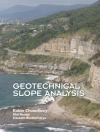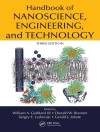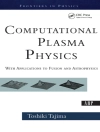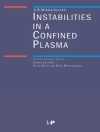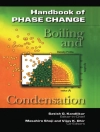Applied Biophysics for Drug Discovery is a guide to new techniques and approaches to identifying and characterizing small molecules in early drug discovery. Biophysical methods are reasserting their utility in drug discovery and through a combination of the rise of fragment-based drug discovery and an increased focus on more nuanced characterisation of small molecule binding, these methods are playing an increasing role in discovery campaigns.
This text emphasizes practical considerations for selecting and deploying core biophysical method, including but not limited to ITC, SPR, and both ligand-detected and protein-detected NMR.
Topics covered include:
* Design considerations in biophysical-based lead screening
* Thermodynamic characterization of protein-compound interactions
* Characterizing targets and screening reagents with HDX-MS
* Microscale thermophoresis methods (MST)
* Screening with Weak Affinity Chromatography
* Methods to assess compound residence time
* 1D-NMR methods for hit identification
* Protein-based NMR methods for SAR development
* Industry case studies integrating multiple biophysical methods
This text is ideal for academic investigators and industry scientists planning hit characterization campaigns or designing and optimizing screening strategies.
สารบัญ
List of Contributors
1. Introduction
Donald Huddler
2. Thermodynamics in Drug Discovery
OBrien Markova&Holdgate
3. Tailoring Hit Identification and Qualification Methods for Targeting Protein-Protein Interactions
Björn Walse, Andrew P. Turnbull, Susan M. Boyd
4. HYDROGEN DEUTERIUM EXCHANGE MASS SPECTROMETRY IN DRUG DISCOVERY
Thorleif Lavold, Roman Zubarev and Juan Astorga-Wells
5. MICROSCALE THERMOPHORESIS IN DRUG DISCOVERY
Tanja Bartoschik, Melanie Maschberger, Alessandra Feoli, Timon André, Philipp Baaske, Stefan Duhr and Dennis Breitsprecher
6. SPR Screening – Applying the new generation of SPR hardware
Kartik Narayan and Steve Carroll
7. Weak Affinity Chromatography (WAC)
Sten Ohlson* and Minh-Dao Duong-Thi
8. 1D NMR Methods for Hit Identification
Mary J Harner, Guille Metzler, Caroline A Fanslau, Luciano Mueller, William J Metzler
9. Protein-Based NMR Methods Applied to Drug Discovery
Alessio Bortoluzzi, Alessio Ciulli
10. Applications of Ligand and Protein-observed NMR in Discovery
Isabelle Krimm
Conclusion
11. Using Biophysical Methods to Optimize Compound Residence Time
G. A. Holdgate, P. Rawlins, M. Bista, C. J. Stubbs
12. Applying biophysical and biochemical methods to the discovery of allosteric modulators of the AAA ATPase p97
Stacie L. Bulfer and Michelle R. Arkin
13. Driving Drug Discovery with Biophysical Information – Application to Staphylococcus aureus Dihydrofolate Reductase (DHFR)
Parag Sahasrabudhe, Veerabahu Shanmugasundaram, Mark Flanagan, Kris A. Borzilleri, Holly Heaslet, Anil Rane, Alex Mc Coll, Tim Subashi, George Karam, Ron Sarver, Melissa Harris, Boris A. Chrunyk, Chakrapani Subramanyam, Thomas V. Magee, Kelly Fahnoe, Brian Lacey, Henry Putz, J. Richard Miller, Jaehyun Cho, Arthur Palmer III and Jane M. Withka
14. Assembly of fragment screening libraries: Property and diversity analysis
Bradley C. Doak, Craig J. Morton, Jamie S. Simpson & Martin J. Scanlon
Index
เกี่ยวกับผู้แต่ง
Donald Huddler, Widener University Delaware Law School, Wilmington, USA.
Edward R. Zartler is Chief Scientific Officer at Quantum Tessera Consulting, LLC, USA.


